Feud fight: Why a Hollywood legend is heading to court at the age of 101
In the era of ‘I, Tonya’, the Oscar-winning actress Olivia de Havilland’s lawsuit against the makers of last year’s docudrama ‘Feud: Bette and Joan’ has a certain potent symbolism
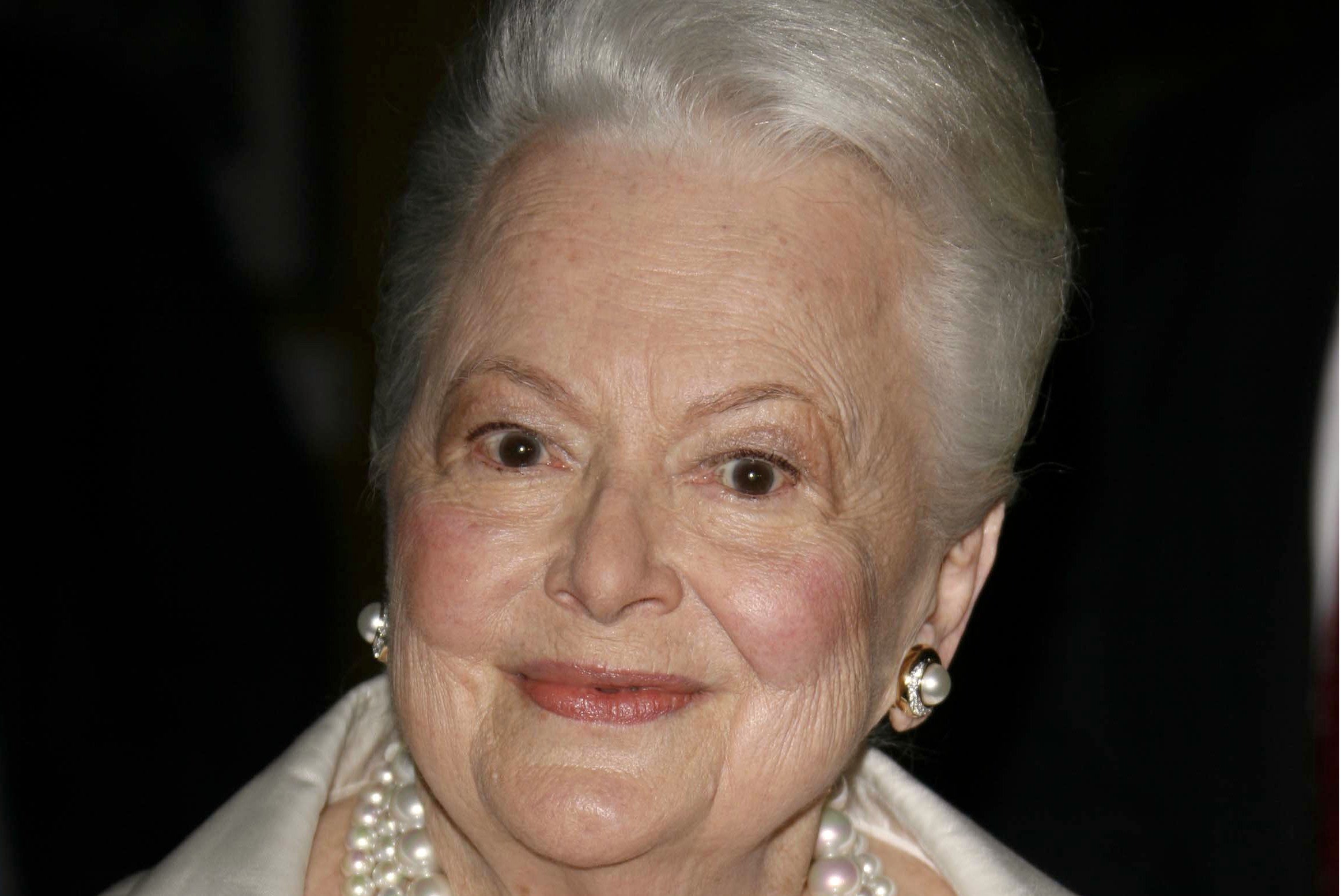
Your support helps us to tell the story
From reproductive rights to climate change to Big Tech, The Independent is on the ground when the story is developing. Whether it's investigating the financials of Elon Musk's pro-Trump PAC or producing our latest documentary, 'The A Word', which shines a light on the American women fighting for reproductive rights, we know how important it is to parse out the facts from the messaging.
At such a critical moment in US history, we need reporters on the ground. Your donation allows us to keep sending journalists to speak to both sides of the story.
The Independent is trusted by Americans across the entire political spectrum. And unlike many other quality news outlets, we choose not to lock Americans out of our reporting and analysis with paywalls. We believe quality journalism should be available to everyone, paid for by those who can afford it.
Your support makes all the difference.Emailing from the Paris hotel where she lives, Dame Olivia de Havilland sounded defiant, and understandably so. The topic at hand was her lawsuit against the FX network and Ryan Murphy Productions over her portrayal by Catherine Zeta-Jones in last year’s docudrama Feud: Bette and Joan, about the rivalry between Bette Davis and Joan Crawford.
De Havilland’s lawyer in Los Angeles, Suzelle Smith, had arranged an electronic question and answer session before a court date much anticipated by both those who remember the Golden Age of Hollywood, rapidly receding in a digitised and rightly diversified age, and by the many in the industry who mine recent history for dramatic purposes (consider the Oscar-nominated films The Post, Darkest Hour and I, Tonya).
On 20 March the California Court of Appeals will hear arguments over whether de Havilland can proceed with her suit, which alleges unauthorised use of her name and likeness to endorse a product – a “right of publicity” claim – as well as false light, which sounds like the old Vaselined lens trick but in fact is a privacy tort akin to libel and defamation.
Few expect her to win, but the action is nonetheless reverberating as a kind of last stand against the current bricolage approach to facts.
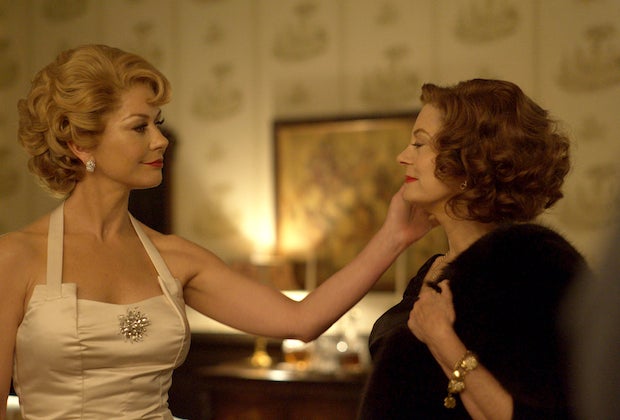
Herself the recipient of two best actress Oscars, for To Each His Own (1946) and The Heiress (1949), de Havilland filed the suit in June, right after Feud aired to widespread critical acclaim, and a day before she turned 101. It was also just a few weeks after the Queen bestowed upon de Havilland, whose equally famous and estranged sister Joan Fontaine died in 2013, the title of dame for her services to drama.
“When Feud was first being publicised, but before it went on the air, I was interested to see how it would portray my dear friend Bette Davis,” de Havilland wrote in an email. “Then friends and family started getting in touch with me, informing me that my identity was actually being represented on the programme. No one from Fox had contacted me about this to ask my permission, to request my input, or to see how I felt about it. When I then learned that the Olivia de Havilland character called my sister Joan ‘a bitch’ and gossiped about Bette Davis and Joan Crawford’s personal and private relationship, I was deeply offended.”
The last time de Havilland had a case before the California Court of Appeals was in 1944. Risking her career, she sued Warner Brothers to get out of her contract, which she had signed in 1936. She had been suspended for refusing parts assigned to her, a common ploy among studio bosses to keep their stars in line, with the missed time tacked on to the length of her deal.
She was 28, a brunette ingénue from English stock, raised in what she has wryly called “the most aristocratic village in the prune belt” of Northern California. In the 1930s alone, she had starred with the swashbuckling Errol Flynn in six films, including The Adventures of Robin Hood, and was lent out to David O Selznick for the role that would make her an American treasure: Melanie Wilkes in Gone With the Wind.
She won then, tipping the scales of studio autocracy and strengthening a California labour statute. The so-named De Havilland Law prohibits the enforcement of a personal services contract beyond seven years.
Nearly three-quarters of a century later, de Havilland is hoping for another victory. Feud, she claims, as a work of historically convincing fiction, falsely exposes her as a hypocrite – “with a public image of being a lady” and a private one as a vulgarity-using gossip, violating de Havilland’s hard-earned reputation for “honesty, integrity and good manners”.
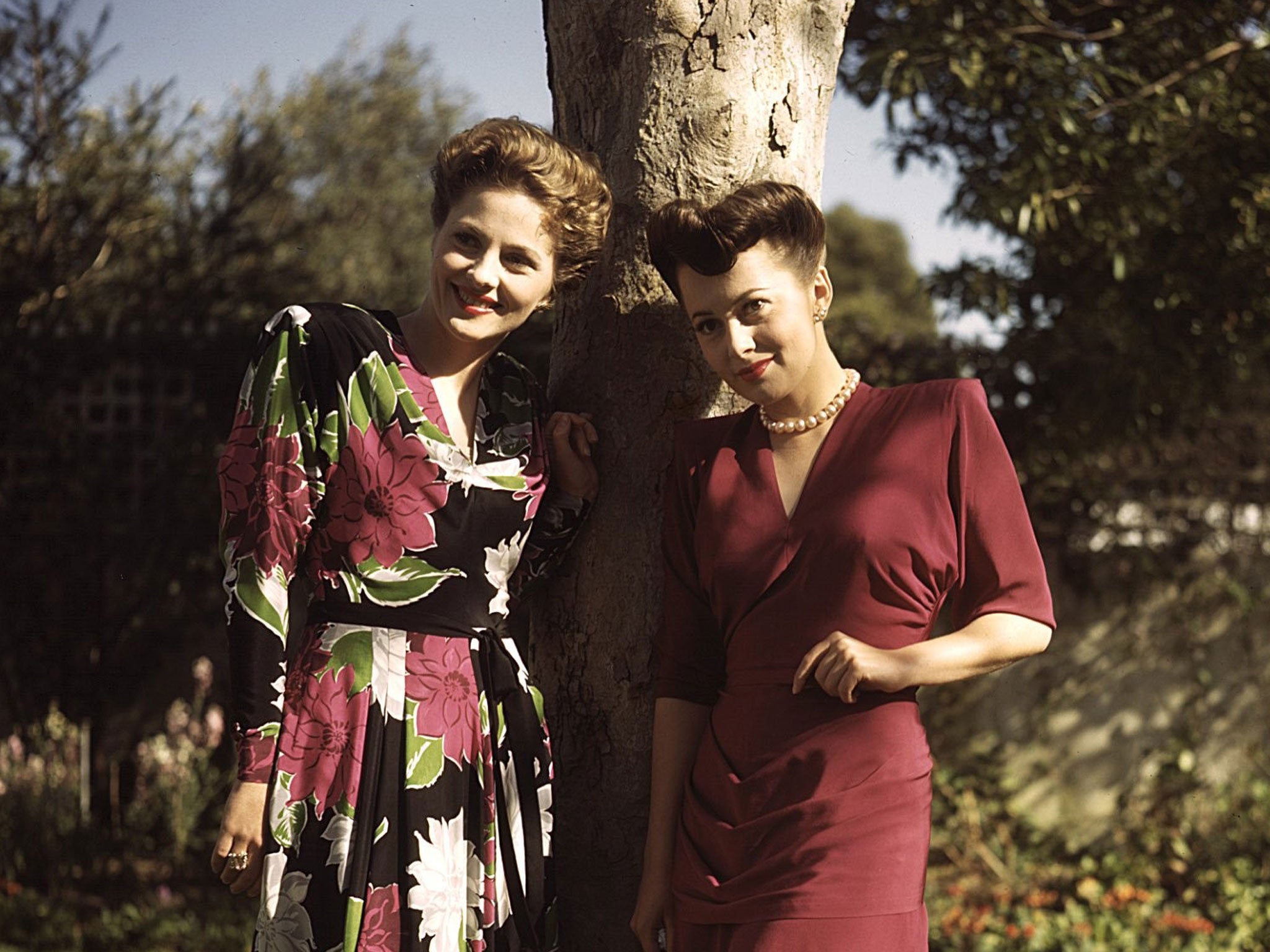
These are qualities that may seem quaint in the age of Twitter. But the legal action arrives during a content boom that has sent writers – and big-league actors and producers – raiding recent history sometimes before it has pickled, looking for figures and epochs to refashion as entertainment.
Courts have overwhelmingly supported First Amendment protections for movies and TV shows about figures and subjects in the public interest. But de Havilland is undaunted.
“A large part of the reason I decided to move forward with my action against Fox is that I realise that at this stage of my life and career I am in a unique position to stand up and speak truth to power – an action that would be very difficult for a young actor to undertake,” she wrote. “I believe in the right to free speech, but it certainly must not be abused by using it to protect published falsehoods or to improperly benefit from the use of someone’s name and reputation without their consent. Fox crossed both of these lines with Feud, and if it is allowed to do this without any consequences, then the use of lies about well-known public figures masquerading as the truth will become more and more common. This is not moral and it should not be permitted.”
De Havilland agrees to interviews sparingly, often mentioning her love of champagne, and has never cooperated with an official biography. Hollywood chroniclers have described relationships with Flynn, John Huston and Howard Hughes, but she has remained regally mum, in contrast to her loose-tongued friend Davis, who died in 1989.
De Havilland’s memoir, Every Frenchman Has One, published in 1962, is about being an American new to France, where she moved in 1955 after marrying her second husband, Pierre Galante, then the editor of Paris Match. She continued to work in movies while raising two children: a daughter, Gisele, her child with Galante; and a son, Benjamin, from her first marriage, to the novelist and screenwriter Marcus Goodrich. Tracey Jackson, a longtime friend, calls her “almost Garboesque” in her protectiveness over her private life.
Then came Feud.
A lavish piece of early 1960s period dish, Feud had considerable pedigree in its Oscar-winning leading ladies, Susan Sarandon as Bette Davis and Jessica Lange as Joan Crawford, and Murphy, whose portfolio of prestigious docudramas includes The People vs. OJ Simpson and The Assassination of Gianni Versace, both part of his American Crime Story serial.
Feud explores Davis’s and Crawford’s longtime hate for each other and their uneasy alliance during the making of Whatever Happened to Baby Jane?, the 1962 film that finally united them on screen. That horror movie, directed by Robert Aldrich, was a surprise hit in a Hollywood being slowly subsumed by the counterculture.
It featured a sadistic Davis, in Kabuki makeup, mentally torturing her paraplegic sister, played by Crawford. For her performance, Davis received her final best actress nomination, evidently sending the spurned Crawford on a furious campaign of anti-Bette Oscar-night subterfuge. (One cannot imagine Frances McDormand and Meryl Streep clashing like this.) In the end, Davis lost to the absent Anne Bancroft for The Miracle Worker, and a triumphant Crawford strode onto the stage to accept the statuette in Bancroft’s honour.
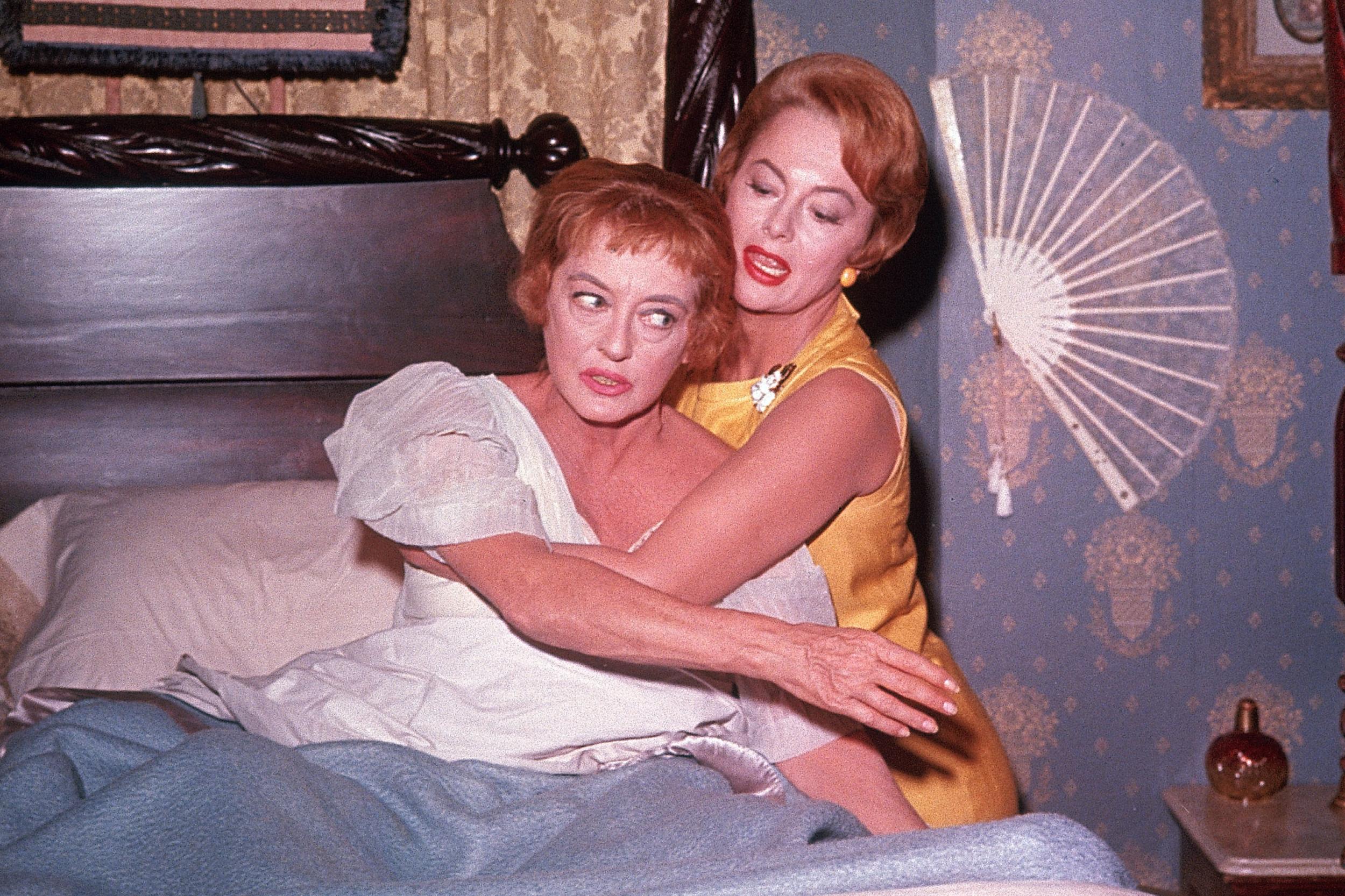
De Havilland’s character is used as a framing device for the Davis-Crawford cage match that unfolds in Feud. The opening lines of the series are hers: “For nearly half a century, they hated each other, and we loved them for it.” Zeta-Jones is posed on a love seat at the 1978 Oscars, giving an interview. Feud meticulously copied the black dress and sheer kaftan the real de Havilland wore to the Oscars that night, as well as her glittering pendant and blonde coif. This physical copycatting is behind de Havilland’s right-of-publicity claim. Her claims of false light relate to the interview itself, which she says she never gave.
To prevail, de Havilland will have to convince a jury not only that the interview was fabricated, but also that it includes sentiments that the writers of Feud either knew were false or proffered in reckless disregard for the truth, causing economic damage to her reputation and “emotional distress”. Lawyers for de Havilland and FX are also engaged in a byzantine fact check over de Havilland’s use of coarse language in other scenes, most notably in reference to her sister, Fontaine.
Smith maintains that her client, at a minimum, should have been consulted about the project ahead of time. “She would have considered, what was their proposal?” the lawyer said. “Are they proposing to compensate her? They would have found out that certain things were not true. Because they didn’t even try, in their arrogance and hubris, they didn’t take what we would argue are reasonable steps to find out what was true, and what wasn’t true.”
The network says that de Havilland’s consent was not needed, because Feud falls squarely under protected speech around fictional works in the public interest. Additionally, it contends that her portrayal is positive. “While I understand Ms de Havilland alleges that she was portrayed as a gossip, the opposite is true,” said Murphy, who refused to comment for this article, in a declaration attached to FX’s defence. “She is portrayed as a wise, respectful friend and counsellor to Bette Davis, and a Hollywood icon with a unique perspective on the past.”
In August, the network filed a motion to dismiss the case under California’s anti-SLAAP (Strategic Lawsuit Against Public Participation) statute, which allows for the quick dismissal of lawsuits that want to chill free speech. One month later, Los Angeles Superior Court Judge Holly Kendig issued her ruling: while Feud arose from protected speech, de Havilland had adequately shown enough cause to deserve her day in court, with the suit fast-tracked because of the plaintiff’s advanced age.
Legal observers were surprised.
“It is unusual for this type of case to proceed past anti-SLAAP,” said Jennifer Rothman, a professor at Loyola Law School and the author of a forthcoming book called The Right of Publicity: Privacy Reimagined for a Public World. If the de Havilland decision were allowed to stand, Rothman said, “then that upends the film industry, the TV industry, the video game industry. Anyone who is trying to make stories based on true events with real people are not going to be able to do so without permission.”
Though de Havilland has the backing of the Screen Actors Guild, considerable forces have amassed against her since the court victory. The Motion Picture Association of America and the streaming behemoth Netflix, which just signed Murphy to an exclusive producing deal reportedly worth $300m, filed an amicus brief urging the appellate court to reverse the trial judge’s decision. Netflix and the MPAA – and Netflix and FX, for that matter – are typically adversaries in a universe of legacy companies fending off big-moneyed new media.
But everyone, it seems, can get behind the cause of stamping out a legal and ethical threat raised by a uniquely sympathetic plaintiff.
“The type of claims pursued by a celebrity like Olivia de Havilland here deserve especially heightened scrutiny because docudramas, biopics and historical dramas – which by design do not portray individuals or events literally or with obedience to historical fact – often depict real people who may not like, and may even be offended or embarrassed by, how they are portrayed,” the MPAA-Netflix brief says.
Public figures are clay for creative expression, is the thinking, and to suggest that producers must purchase consent or life rights encourages only whitewashed portrayals, lest the subjects sue.
Moreover, according to Murphy, the five credited Feud writers “endeavoured in good faith to ensure that the dialogue from Zeta-Jones’s characterisation of de Havilland was based on comments, sentiments and tonal emotions expressed through the years by Ms de Havilland herself”.
It is common knowledge that de Havilland had her own feud with Fontaine; what’s at issue is how it was conducted. “‘Dragon Lady’, as I eventually decided to call her, was a brilliant, multitalented person, but with an astigmatism in her perception of people and events, which often caused her to react in an unfair and even injurious way,” de Havilland told The Associated Press in 2016.
Feud is more succinct. “You know what my bitch sister has taken to telling the press?” de Havilland’s character says to Davis in Feud. “That I broke her collarbone when we were children.”
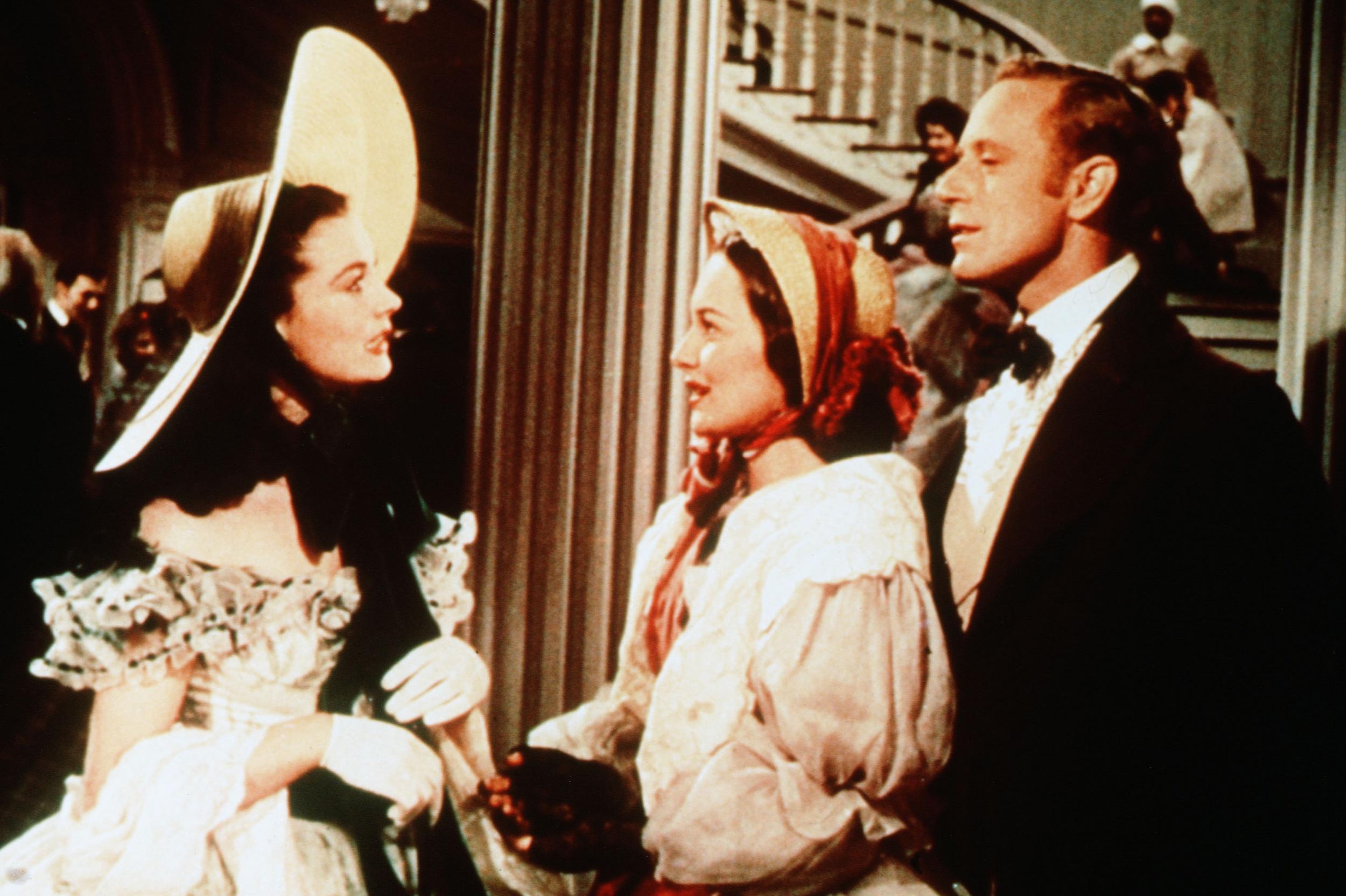
“We thought ‘bitch’ was more mainstream and would be better understood by the modern audience than ‘Dragon Lady’,” Tim Minear, a writer on the show, explained in court documents.
Lawyers for FX argue that the descriptors are synonyms. Further, they cite a vintage Warner Bros blooper reel in which de Havilland lets forth with, “Oh, Christ, son of a bitch,” after flubbing a line on the set of the 1946 film Devotion, in which she played author Charlotte Brontë.
De Havilland insists that the clip and others like it, which lives on via YouTube, are exceptions. “Looking back at my younger self, I wish I had been more guarded in my language,” she told the court. “But these outtakes or bloopers are just that, mistakes and errors, not language that I did or would use in discussing other friends or family in a normal, polite, private or public forum.”
As for the suggestion that de Havilland never publicly gossiped: “Plaintiff gave many other television and print interviews in which she commented on other actors,” according to FX’s defence. “In an Academy of Achievement video interview, she criticised British actor Ralph Richardson: ‘He would do rather naughty things. He was a glove flapper’.”
Feud moves seamlessly between documentary style visual cues and vibrant re-creation. In their supportive brief for FX, Netflix and the MPAA note that audiences these days are not literal in their interpretation. “Viewers of docudramas understand that real-life events are not portrayed in exactly the same way as they actually occurred, but rather are woven together around a story and narrative.”
That argument is at once legally defensible and slyly self-serving, when the very thing a docudrama sells is the excitement of pulling back the curtain to reveal what really happened.
In its clearest form, the right of publicity, an offshoot of privacy law, is meant not as a tool of censorship but to enable celebrities and other public figures to protect their images from false or unauthorised endorsements of products. In California, a hub of entertainment where the law is most hotly contested, the issue hinges on whether the person’s identity has been transformed – in other words, used as “the raw materials” for creative expression – or merely co-opts the “sum and substance” of the person wholesale.
Because the makers of Feud admitted that they wanted to make the appearance of the de Havilland character as real as possible, the judge said, her likeness was not transformed, leaving the miniseries open to a right-of-publicity claim.
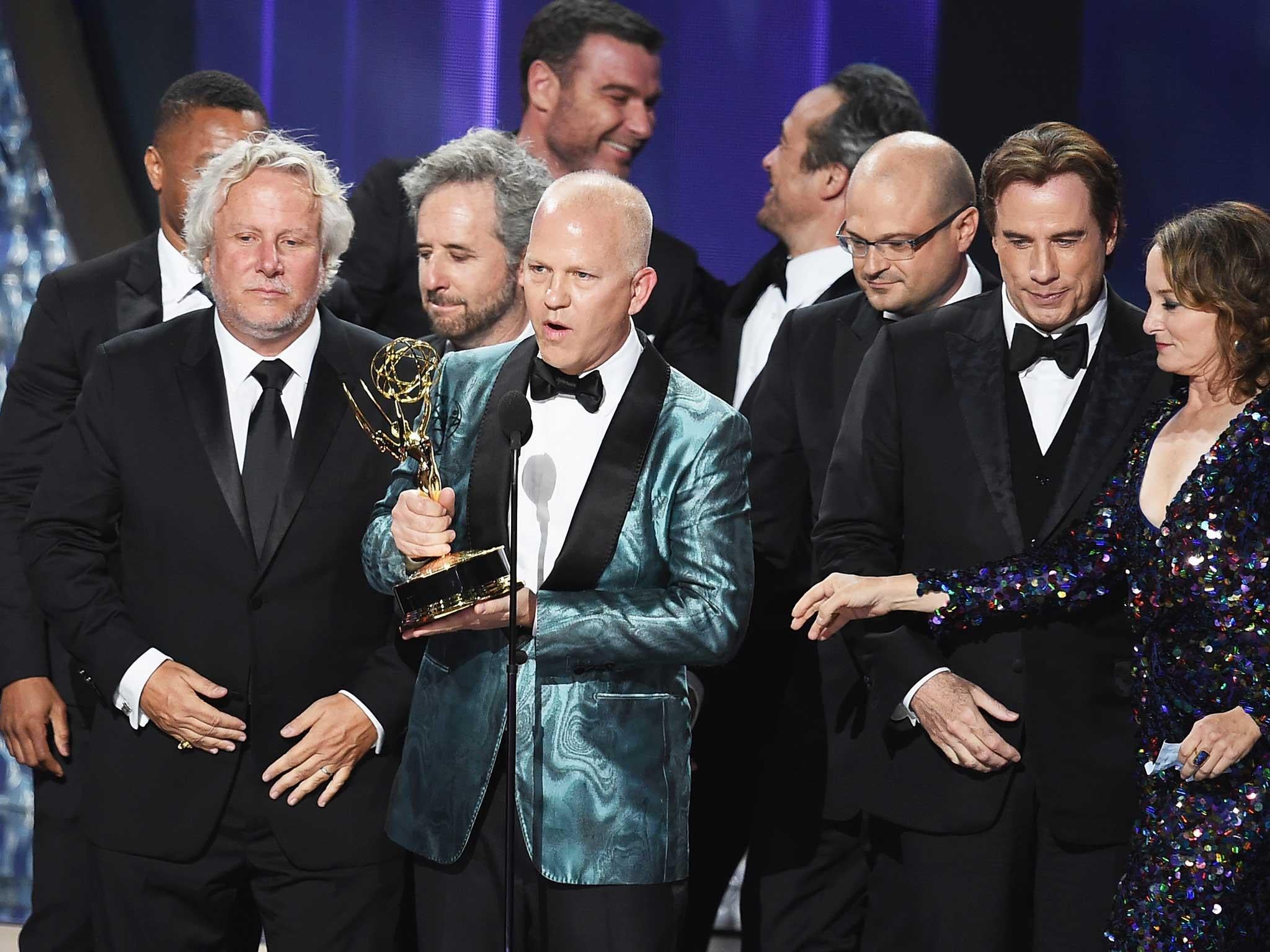
On her right-of-publicity website in the last month alone, Rothman has tracked claims against The Simpsons brought by an actor from the movie Goodfellas, and one by the estate of jazz legend Thelonious Monk against a microbrewery making Brother Thelonius beer. In California, cases like de Havilland’s are measured against a 2001 state Supreme Court ruling that established the transformative test to begin with.
In that case, the owners of the post-mortem rights of the Three Stooges sued a celebrity lithographer, Gary Saderup, for selling T-shirts bearing the comedy trio’s images. The court found that Saderup was liable because his drawings were too imitative, failing to “transform” the Stooges’ likeness. (In its ruling, the court drew a distinction between Saderup’s literal depiction of the Stooges and Andy Warhol’s transformative screen prints of Marilyn Monroe.)
Rothman believes right-of-publicity law is more urgently needed in cases of catfishing and revenge porn, where the victims aren’t celebrities or inherent publicity seekers.
There is precedent on both sides. Lawyers for de Havilland point to the Stooges case as well as a 2011 California appellate court ruling that found in favour of the band No Doubt, which sued the video game publisher Activision for violating the terms of a licensing agreement in the game Band Hero.
Lawyers for FX are more partial to a 1979 state Supreme Court decision disallowing a post-mortem right-of-publicity claim against a fictionalised TV movie about the life of Rudolph Valentino. Or an appellate court’s 2016 denial of a claim brought by former Army Sergeant Jeffrey Tarver, an explosive ordnance disposal technician who sued the makers of the Oscar-winning film The Hurt Locker.
As in The Hurt Locker case, Feud “is a docudrama, and therefore scenes are dramatised – ie transformed,” the defence motion in de Havilland reads. Besides, Zeta-Jones wasn’t even in enough of the miniseries to merit inclusion in the show’s opening credits.
Asked via email if her retirement from acting was a decision she came to with ease or difficulty, de Havilland said: “I would like to answer your question with another: How many roles of significance are written for women of advanced years?”
By the Seventies and Eighties, de Havilland was down to sporadic miniseries, disaster movies and TV guest spots. In 1981 came an episode of The Love Boat. The last movie she appeared in, The Woman He Loved was a made-for-TV production in 1988.
It’s a sadly familiar story about how Hollywood treats its female elders, something that Murphy kept pointing to as motivation for covering the Crawford-Davis story. As de Havilland awaits her public hearing, he has moved on to the next subjects in the Feud anthology: Prince Charles and Princess Diana.
© New York Times
Join our commenting forum
Join thought-provoking conversations, follow other Independent readers and see their replies
Comments